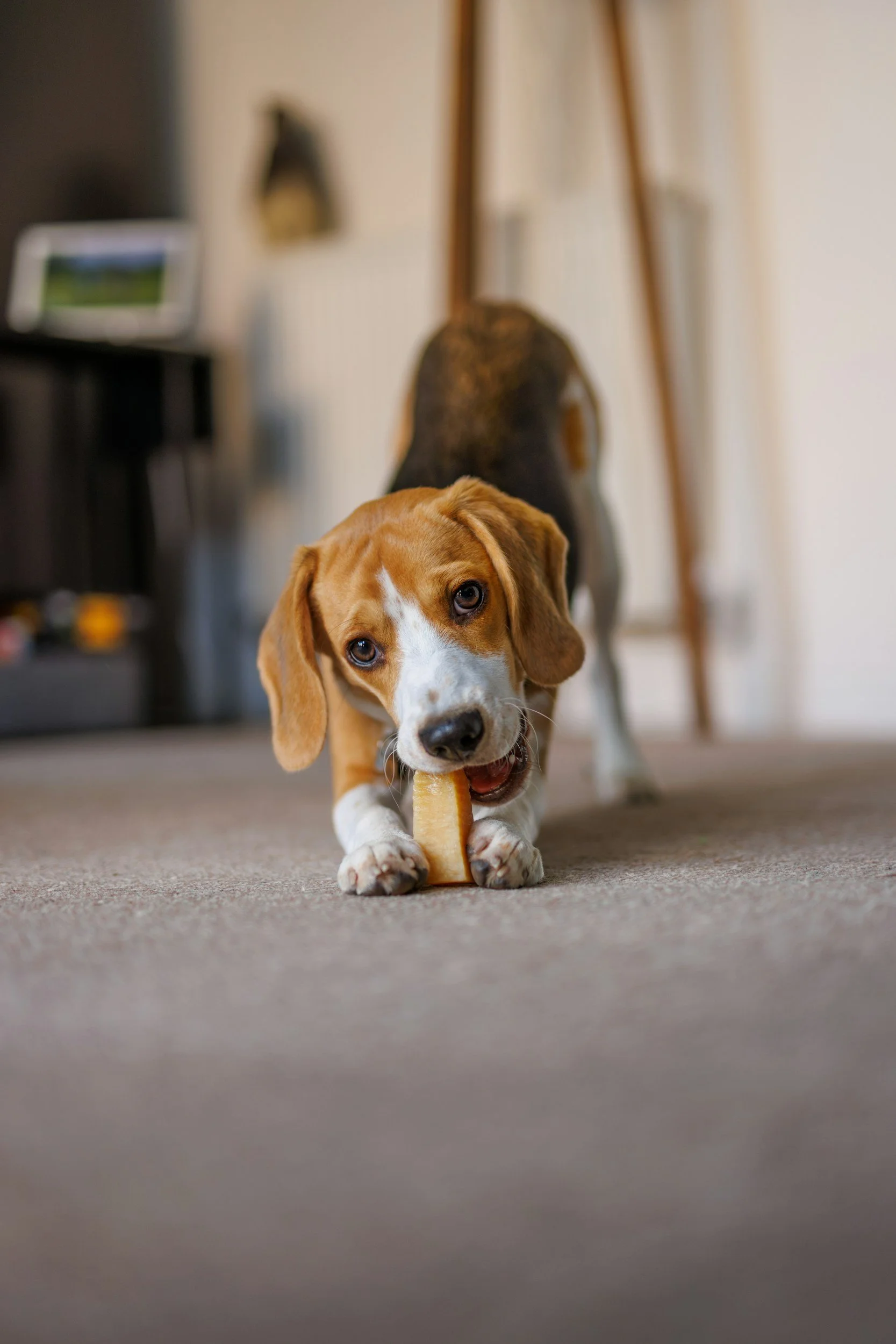Decoding puppy biting & nipping
Beyond the Cuteness: How to Gently Stop Puppy Nipping & Biting
Puppy biting is a natural behaviour, especially during play, as puppies explore the world with their mouths. However, it can become problematic if not addressed early on. Below are some effective strategies to manage and curb biting
Bringing a new puppy home is incredibly exciting! Those tiny teeth are adorable... until they're attached to your ankles, hands, or furniture. Puppy nipping and biting is one of the most common challenges new owners face, especially with energetic breeds like many Doodles. But don't worry, it's a completely normal part of puppy development, and with the right approach, you can guide your little land shark towards gentle manners. As an IMDT accredited dog trainer in North London, I'm here to help you understand why your puppy nips and, more importantly, what you can do about it!
Why Do Puppies Nip and Bite? Puppies explore the world with their mouths. It's how they learn about textures, boundaries, and how to communicate. Littermates teach each other "bite inhibition" through play – if one bites too hard, the other yelps and stops playing. When your puppy comes home, you become their new "littermate" for this crucial learning. Teething also plays a huge role; just like human babies, puppies need to chew to relieve discomfort.
Your Action Plan to Stop the Nips:
Redirection is Your Best Friend: The moment your puppy's teeth touch your skin, immediately offer something appropriate to chew on. Have a variety of stimulating chew toys readily available.
Try: A durable KONG Wobbler filled with frozen peanut butter or kibble or a Nylabone Puppy Chew. These provide appropriate outlets for chewing and keep them occupied.
Enforce "No Teeth on Skin" Rules: If your puppy nips you, immediately withdraw attention. This means standing up and turning away, or even leaving the room for 10-20 seconds. Return and try again. If the nipping continues, repeat the process. This teaches them that biting too hard makes the fun stop.
Provide Plenty of Appropriate Chew Toys: Prevention is key! Ensure your puppy always has access to a range of safe and engaging chew toys. Rotate them to keep things interesting. Think about different textures and durability for teething relief.
Consider: A benebone chew toy or a snuffle mat for mental stimulation which can tire them out and reduce the urge to bite.
Manage Overtiredness: Puppies, especially energetic breeds like Doodles, get overstimulated and mouthy when they're tired. Ensure your puppy gets enough structured naps throughout the day in a quiet, safe space like a crate.
Avoid Rough Play with Hands: While it's tempting, avoid wrestling or rough play where your hands become toys. This inadvertently encourages biting. Instead, use toys during play. A flirt pole is excellent for burning energy safely without putting your hands at risk.
Socialisation and Bite Inhibition through Play Dates (When Appropriate): Once fully vaccinated, safe, supervised play with other well-mannered, vaccinated puppies can be invaluable for teaching bite inhibition. Your puppy learns from their peers what's acceptable. This is a core part of our North London puppy training classes.
Patience and consistency are paramount. Puppy nipping is a phase, and with positive reinforcement and the right guidance, your puppy will learn to be gentle. If you're struggling or want a structured approach to ensure you're starting off on the right paw, Doodle Doggies offers tailored Puppy Home Start Sessions and comprehensive Puppy Training Packages right here in Mill Hill. Let's work together to make those tiny teeth a thing of the past!
